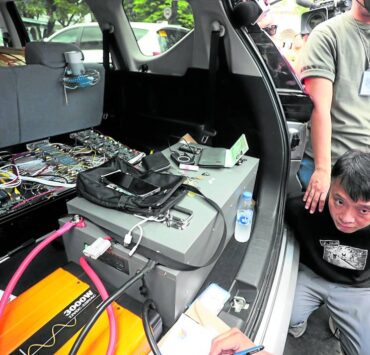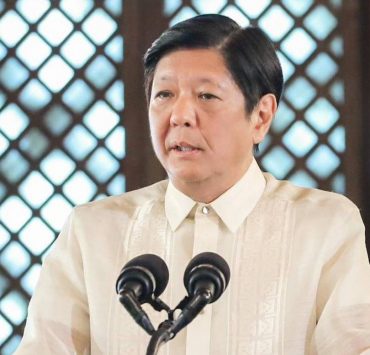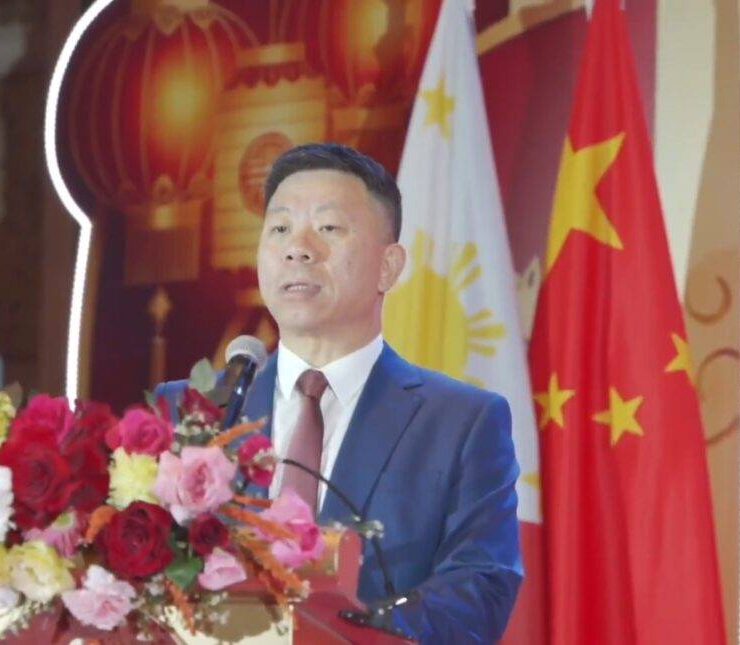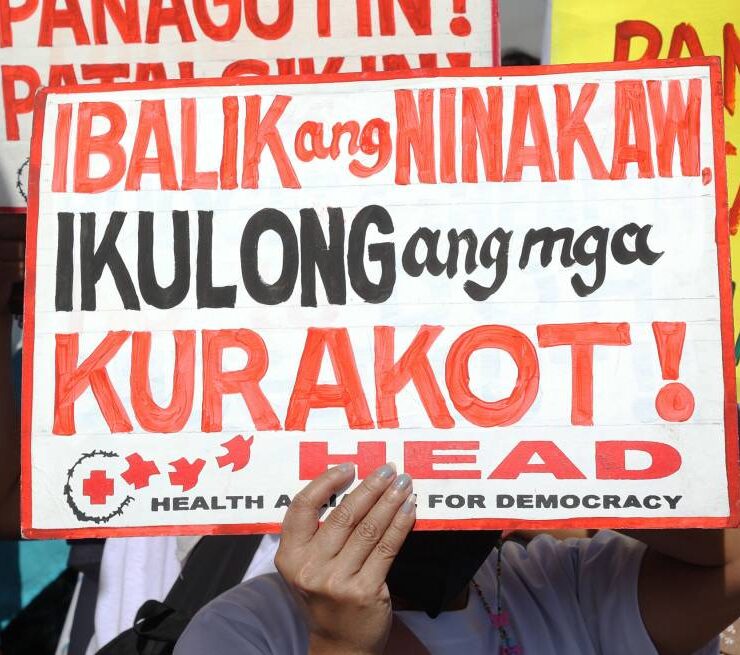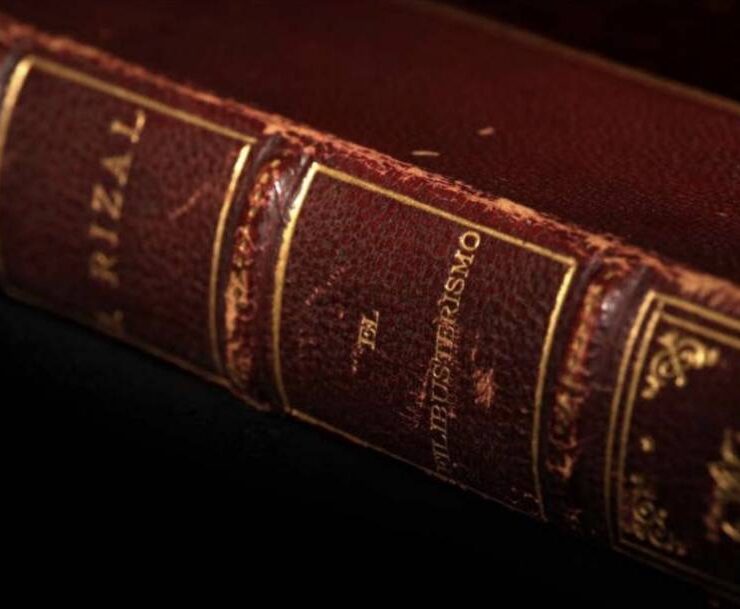PH, Japan reaffirm security alliance
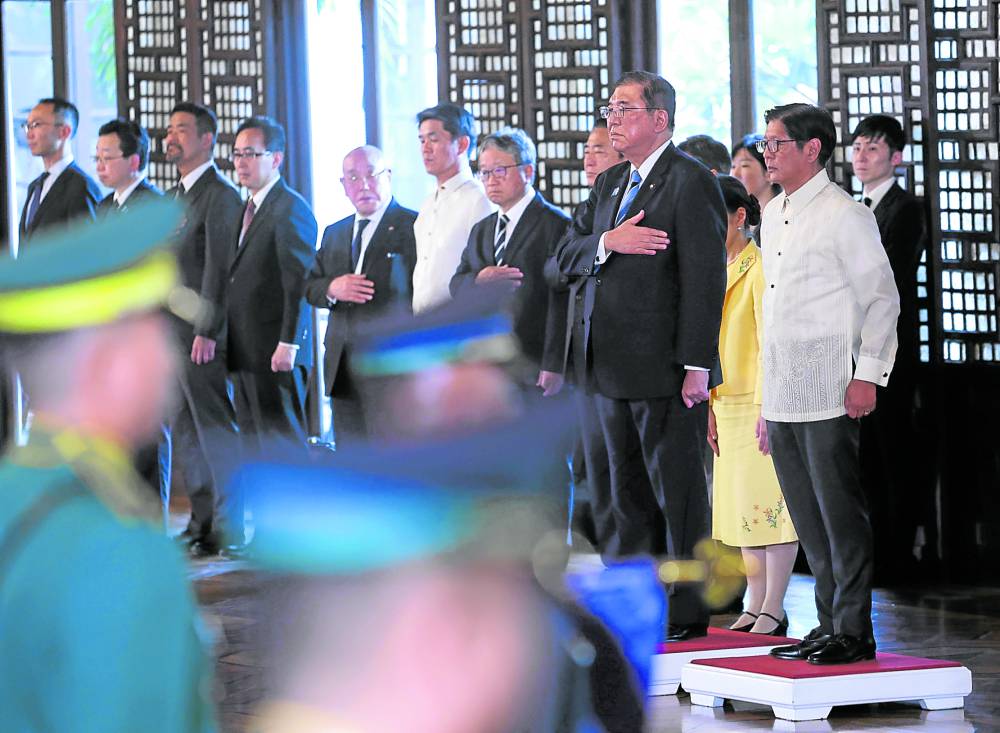
The Philippines and Japan reaffirmed their commitment to push back against foreign aggression and uphold peace and stability in the Indo-Pacific region, as President Marcos welcomed Japanese Prime Minister Ishiba Shigeru on his two-day official visit to the Philippines.
A joint statement on Tuesday said the two leaders tackled strengthening bilateral cooperation across defense, economic and diplomatic fronts, with both leaders underscoring the strategic importance of their partnership amid growing regional tensions, particularly in the West Philippine Sea.
“Our discussions today laid the groundwork for a future-facing relationship anchored in peace, shared prosperity, and a rules-based international order,” Mr. Marcos said.
“Japan has helped us achieve our aspiration for peace and friendship with all nations—with strength and with integrity,” the President added.
The first couple welcomed Ishiba and his wife in Malacañang. Mr. Marcos described the visit as a testament to the “golden age” of diplomatic relations between Manila and Tokyo.
70 years of diplomacy
The two countries are set to mark 70 years of diplomatic ties in 2026. Formal diplomatic relations between the Philippines and Japan were restored with the signing of the Philippines-Japan Reparations Agreement that laid out the terms of indemnification for Japan’s occupation of the Philippines during World War II.
In a speech, Mr. Marcos cited Japan’s “key role” as a security partner, having given the Philippines its Official Security Assistance (OSA), which supposedly helped upgrade the country’s defense capabilities.
According to the President, the two countries also agreed to begin negotiations for an Acquisition and Cross-Servicing Agreement (Acsa), which would allow closer military logistics cooperation between their armed forces.
Ishiba’s visit was part of a series of high-level exchanges aimed at reinforcing the Philippines-Japan Strengthened Strategic Partnership, as both countries face increasing security concerns in the South China Sea, he said.
Neither leader cited China by name in relation to their maritime security concerns.
“Our relationship with Japan is grounded in a spirit of reconciliation, brotherhood, and amity,” Mr. Marcos said.
“Japan has been of great assistance in helping us achieve our aspiration for peace and friendship with all nations with strength and with integrity,” he said.
The two leaders also vowed continued cooperation on infrastructure, agriculture, and peace-building efforts in Mindanao.
In response, Ishiba cited the deep historical ties and shared values between the Philippines and Japan as “maritime nations bound by fundamental values and strategic interests.”
He noted that amid growing international divisions, cooperation between the two countries was “more important than ever” to realize a free and open Indo-Pacific. He noted that bilateral security cooperation accelerated under Mr. Marcos’ leadership.
Ishiba said Japan was advancing a “multilayered” approach to strengthen security and maritime cooperation, including joint efforts to conclude a Reciprocal Access Agreement and the transfer of defense equipment.
The proposed agreement will allow the deployment of both country’s military forces to each other’s territory for joint training, disaster response and other activities.
Ishiba said Japan recently delivered its first air surveillance radar to the Philippines and provided coastal surveillance radars through OSA, and conducted joint maritime exercises and law enforcement support such as donated patrol vessels.
“On security, as we see, the deepening of our bilateral cooperation in a multilayered way in recent years,” he said, citing the start of the Acsa negotiations.
Benefits for PCG
The Japanese leader cited the January 2025 Japan-Philippines-US leaders’ video conference and recent visits by Japan’s foreign and defense ministers to Manila as signs of “close coordination.”
Although not strictly a form of military assistance, the Philippine Coast Guard (PCG) has benefited from Japan’s Official Development Assistance (ODA) loans to acquire its two largest ships and to fund the construction of five more of the same 97-meter multirole response vessels.
The additions to the PCG fleet will be similar to the BRP Teresa Magbanua and the BRP Melchora Aquino, which have been deployed to patrol the West Philippine Sea, waters within the country’s 370-kilometer exclusive economic zone.
The first of the five new ships was expected by late 2027, PCG Commandant Adm. Ronnie Gil Gavan told reporters on Tuesday after he showed the Teresa Magbanua to Japan Coast Guard Commandant Adm. Seguchi Yoshio at the South Harbor in Manila.
The PCG will acquire the five patrol vessels under an ODA loan from Japan worth P23.85 billion.
Yoshio, who held a bilateral meeting with Gavan earlier in the day, is in the country in time for the Ishiba’s trip to Manila.
The Teresa Magbanua and the Melchora Aquino have been deployed to the West Philippine Sea to challenge the illegal presence of Chinese vessels in Philippine waters.
In April last year, the Teresa Magbanua started a five-month deployment to Escoda (Sabina Shoal) following the reported presence of Chinese ships and alleged Chinese reclamation in the area. —WITH A REPORT FROM NESTOR CORRALES














